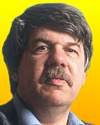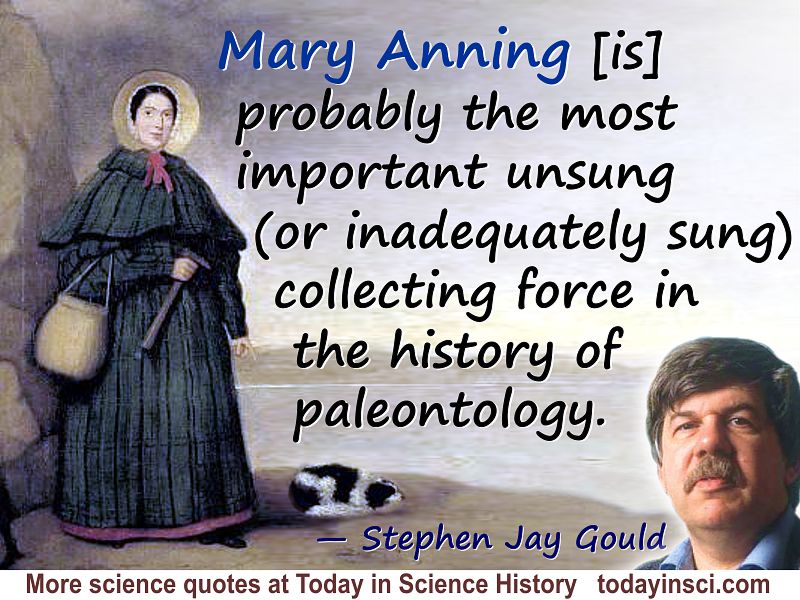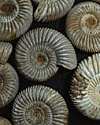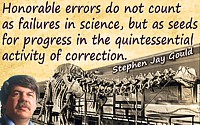 (source)
(source)
|
Stephen Jay Gould
(10 Sep 1941 - 20 May 2002)
American palaeontologist, evolutionary biologist, science historian and author who was a frequent and popular speaker on the sciences. His published work includes both scholarly study and many prize-winning popular collections of essays.
|
Stephen Jay Gould - Mary Anning
Illustrated Quote - Large (800 x 600 px)
More Stephen Jay Gould quotes on science >>
This quote appears in a book written by Stephen Gould with photographs by Rosamond Purcell. It appears in the paragraph introducing the collector Mary Anning:
Mary Anning, probably the most important unsung (or inadequately sung) collecting force in the history of paleontology, was the daughter of a carpenter who supplemented his living, as so many citizens of Lyme Regis did (and still do), by selling shells and fossils to vacationers.
When Anning was twelve, soon after her fathers death, she found one of the first English ichthyosaurs in 1812. By good fortune, the naturalist Sir Everard Home was visiting Lyme Regis at the time, and encouraged Anning’s work by praise for her industry and money for her specimen.
Other collectors described in Gould’s book are Peter the Great, Phillip Von Siebold, Willern Von Heurn, Eugen Dubois, Walter Rothschild, Agostino Scilla, Thomas Hawkins and Louis Agassiz. Gould's description accompany precise and beautiful photographs by Rosamond Purcell.
- Science Quotes by Stephen Jay Gould.
- 10 Sep - short biography, births, deaths and events on date of Gould's birth.
- Stephen Jay Gould - context of quote Mary Anning - Medium image (500 x 350 px)
- Stephen Jay Gould - context of quote Honorable errors…not…failures in science - Medium image (500 x 350 px)
- Stephen Jay Gould - context of quote Honorable errors…not…failures in science - Large image (800 x 600 px)
- Stephen Jay Gould - context of quote The status of Galileo - Medium image (500 x 350 px)
- Stephen Jay Gould - context of quote The status of Galileo - Large image (800 x 600 px)
- Stephen Jay Gould: Reflections on His View of Life, by Patricia Kelley, Robert Ross and Warren D. Allmon (ed.). - book suggestion.
- Booklist for Stephen Jay Gould.








